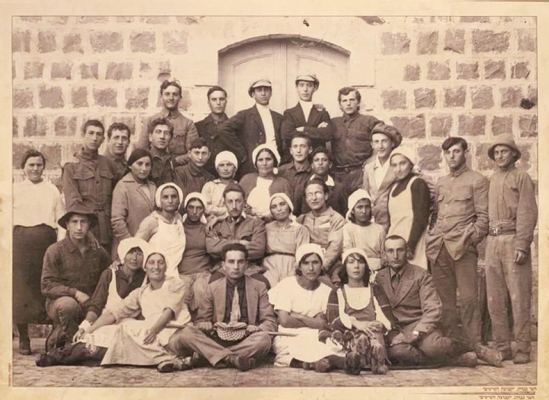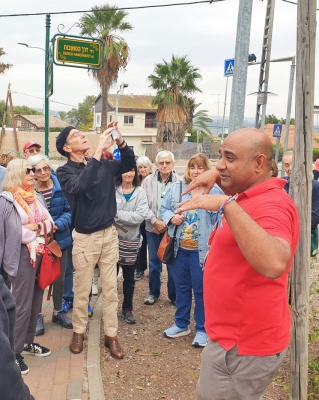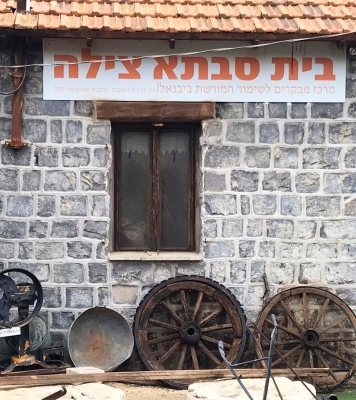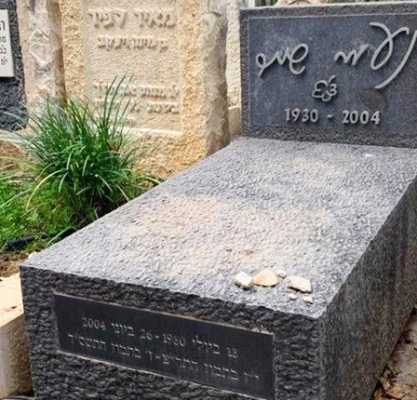On the Shores of the Kinneret
From Rachel to Naomi Shemer
By Bernice Hunkin and Jon Levin
Photos by Ruth Barina
After the 24 November day trip in the area of some of Israel's favorite poets, two participants share their experiences and impressions.
We boarded the ESRA bus with high expectations for a great day out. The weather was a slight worry but we kept a positive attitude. After a brief wake-up coffee stop, Ron, our guide, gave us an overview of the area and sights for the day's trip. He was assisted by ESRA volunteer Ruth Barina, who took care to make sure we were all present and informed.
The trip was especially interesting for me as it reflected the Zionist dream coming to light. It was amazing to see how a barren land had become fruitful and productive against all the odds and hardships, which true Zionists overcame to turn their dream into a reality.
It was sadly moving to hear the story of Rachel, one of the major pioneers of the land, who died a spinster, while her lifelong friend, Noah Naftulski, died a bachelor. But it was also heartwarming to see them buried close to each other in the beautiful Kinneret cemetery, and in the place they both loved and nurtured.
After that bitter-- sweet experience, it was a special treat to visit Beit Tamar and taste the fruits of the land, as well as see a movie about how the date farm was established and developed.
We finished off the visit with the sweet taste of dates. For me personally, this was a great experience about learning the history of the land, where once a single tree stood and how it flourished to become a lush farmland through determination and struggle. I'm looking forward to more wonderful trip experiences with ESRA. Many thanks.
Bernice Hunkin
This trip brought home to me how the chaos of history and civilization brought people to the vicinity of the Sea of Galilee. They were driven by desperation, faith, disease, and persecution, and many people's lives intersected here. The cemetery visit held particular interest, with graves of well-known prominent people, as well as unmarked graves of those expelled from other locations by the Turks. Many deaths of the time were due to typhoid or malaria, probably exacerbated by poor nutrition. It was sad to learn that Degania felt they had to expel Rachel, the poet, because of her tuberculosis, rather than allowing her to remain in isolation.
Our congenial and well-informed guide, Ron, is of Indian extraction, his parents having made aliyah from Karala state around 1950. The bus driver was patient and the bus was comfortable, so altogether it was a very pleasant Thanksgiving Day trip.
Jon Levin











Comments